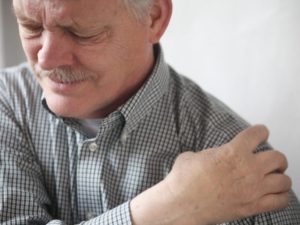 Polymyalgia rheumatica (PMR) is an inflammatory disorder that causes muscle pain and stiffness, especially in the shoulders, lower back, and hips. Signs and symptoms of polymyalgia rheumatica usually begin quickly and are worse in the morning. Most people who develop polymyalgia rheumatica are older than 65. When you have polymyalgia rheumatica, it can take all your strength just to get out of bed in the morning. (PMR) or polymyalgia rheumatica make it difficult to complete your everyday task. Prescription medications can help relieve pain. PMR is usually treated with a low dose of an oral corticosteroid, such as prednisone. You’ll likely start to feel relief from pain and stiffness within the first two or three days. In this article, we would like to give a few tips on how to cope with your PMR pain.
Polymyalgia rheumatica (PMR) is an inflammatory disorder that causes muscle pain and stiffness, especially in the shoulders, lower back, and hips. Signs and symptoms of polymyalgia rheumatica usually begin quickly and are worse in the morning. Most people who develop polymyalgia rheumatica are older than 65. When you have polymyalgia rheumatica, it can take all your strength just to get out of bed in the morning. (PMR) or polymyalgia rheumatica make it difficult to complete your everyday task. Prescription medications can help relieve pain. PMR is usually treated with a low dose of an oral corticosteroid, such as prednisone. You’ll likely start to feel relief from pain and stiffness within the first two or three days. In this article, we would like to give a few tips on how to cope with your PMR pain.
Exercise or Physical Therapy Can Help
Being sedentary can make PMR stiffness worse. Physical activities and hobbies such as gardening, swimming or just taking a walk in the park are a great way to keep you active. It is good to rotate activities in order to avoid the same set of muscle and joints from getting over fatigued. Start slow and easy. Getting the body moving, even with low-impact activities, is better than rest for many people with polymyalgia rheumatica. Work with a physical therapist. A session or two with a physical therapy professional can give you a customized set of exercises to ease your pain, improve your range of motion, fight inflammation and relieve stiffness. Try a yoga or tai chi class it is important to perform stretches slowly and advance only if you feel comfortable and without pain.
Use Medical Devices to Help Simplify Your Daily Activities
To help you get out of bed and walk around when hips and back are painful and stiff try a walker or rollator. To help with bending raising and moving arms try long handled bath and hair brushes. If tying your shoelaces are complicated, try elastic shoelaces. To help with reaching the top of your highest kitchen cabinet or to grab clothes from the dryer purchase a reaching aid grabber tool. When buying clothing buy buttoned shirts or blouses so you do not have to pull shirts over your head.
Eat a Healthy Diet
Diet can also have a direct impact on symptoms. It is unclear what causes PMR, and there is currently no cure. It is advised to follow a PMR diet that contains foods from all the food groups, including protein, healthful fats, and fiber. Calcium is an essential nutrient for maintaining good bone health, while vitamin D supports the absorption of calcium into the body. It is particularly important that people with PMR include calcium adn vitamin D in their diet. Fats are an essential nutrient. People should avoid some types of fats, such as trans-fats, but many good fats exist, and people with PMR should include them in a balanced diet. Many foods have anti-inflammatory properties, consuming these foods as part of a balanced diet may also help to reduce the symptoms of PMR.
Use Coping Skills for Chronic Pain
Here are a few tips to help you focus, calm down and relax. While interventional and pharmaceutical interventions are important, controlling your stress level is critical to successfully coping with pain. Meditation and relaxation techniques are a great way to improve concentration, release endorphins and decrease anxiety and stress. Activities such as reading a book, listening to music, crafting, or watching a movie can be beneficial. Sharing a cup of teas with a friend and sharing your feeling can be a great stress reliever and provide comfort on a bad day. And don’t forget to get a good nights sleep, your body needs to rest, heal and repair.
Effective methods for Polymyalgia Rheumatica relief may vary from one individual to another. Try one or more of these to see if your pain and stiffness improve over time.
For persistent pain that is interfering with your daily activities, see a rheumatologist to make the correct diagnosis and begin the proper treatment.
Contact Us (859-331-3100) For More Information to Request an Appointment
—
 About Tristate Arthritis and Rheumatology
About Tristate Arthritis and Rheumatology
Tristate Arthritis and Rheumatology is first and largest Rheumatology practice in the Northern Kentucky area. Founded by Dr. Arthur Kunath in 1986, our rheumatology practice now consists of six doctors who are board certified in both Internal Medicine and Rheumatology and a Physician Assistant. Patients see one doctor (except in emergencies), thereby assuring continuity of care and an individualized doctor-patient atmosphere giving the physician the ability to establish personalized and detailed relationships. Our doctors have received numerous awards, including being listed as “Top Doctors” in Cincinnati Magazine, receiving the Patient’s Choice Award, the Most Compassionate Doctor Award, and the American College of Rheumatology’s “My Doc Rocks” award.
>> Learn More


